Partner Resources
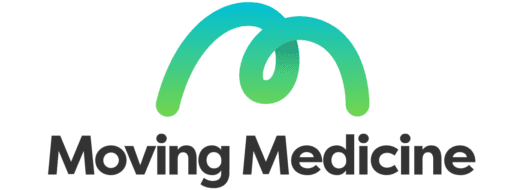
Consensus Statement
The benefits of physical activity for people living with long term conditions are well established. However, the fear of increasing symptoms or worsening long term problems commonly stops people from moving more. Many healthcare professionals also feel unsure about what advice they should give to people living with symptomatic medical conditions. To help address concerns around risk, this consensus statement helps to understand what safety advice healthcare professionals should give to people in clinical practice.

Physical Activity Guidelines
If you’re looking to build more movement into your everyday life, it’s useful to know how much activity you need to do in order to benefit your health.
There are lots of apps, programmes and gadgets out there, which will help you keep track of your activity levels. However, the UK’s Chief Medical Officer has published simple, straightforward guidelines that will help you set some targets for how much activity to do.
The downloadable infographics act as a handy reminder as you continue along your journey to becoming more active on an everyday basis.
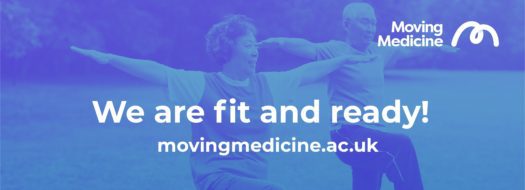
Moving Medicine
Moving Medicine is a comprehensive resource designed to help healthcare professionals integrate physical activity conversations into routine clinical care. They’ve launched 4 new resources to help healthcare professionals have better conversations about physical activity with people suffering from anxiety, type 1 diabetes, people who are obese and people experiencing menopause.
To help address concerns around physical activity and risk, read the recently launched consensus statement around the safety advice healthcare professionals should give to people with long term health conditions.

Physical Activity & Cancer
South East London Cancer Alliance have created tumour specific ‘top tips’ resource for professionals to use when giving advice and information to patients around physical activity.
Find advice about how much physical activity to do and how to be active after a cancer diagnosis. Access treatment and tumour specific practical advice about how to be active. Find out where to refer or signpost people with cancer if they need more support. Access exercise videos and more tips on how to get active.
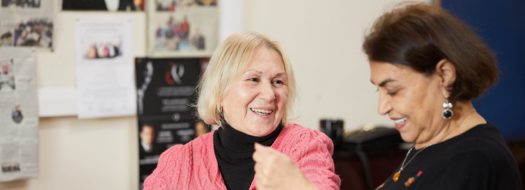
Centre for Ageing Better
The Centre for Ageing Better is a charitable foundation, funded by The National Lottery Community Fund. Their vision is a society where everyone enjoys later life. They want to shift negative attitudes to ageing and older age. To help support organisations in challenging ageism, they have produced a practical guide to talking about ageing and older age. They have also produced a free comprehensive age-positive image library to tackle negative stereotypes of later life. The images, which depict older people in non-stereotypical ways, are available for download and free to use.
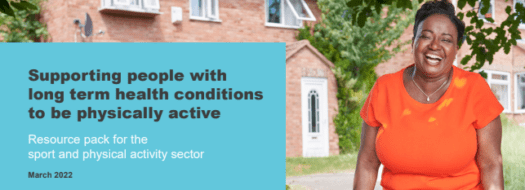
Physical Activity Resource Packs
The Richmond Group of Charities have developed a series of Physical Activity and Long Term Health Conditions Resource Packs aimed at the sport and physical activity sector, health and care organisations and the health and care workforce.
You will find three bespoke packs each tailored to a specific audience plus case studies and a resource hub via the link below.
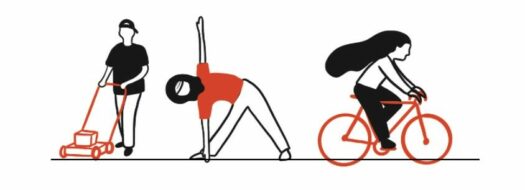
Easier to be Active
One in three of people in England live with a health condition and they are twice as likely to be amongst the least physically active, yet we know that being active can help to manage conditions and increase quality and length of life.
The Easier To Be Active campaign explores the ways in which we can help people with long-term health conditions lead a more active lifestyle. The research findings have been used to co-create new insight and recommendations for those who provide, design, commission and deliver sport, physical activity and health and care services.
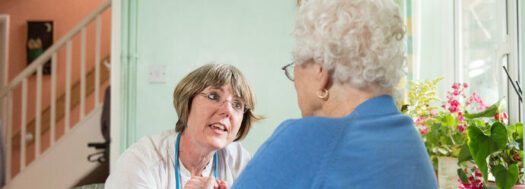
Deconditioning & Falls Prevention
The National Falls Prevention Co-ordination Group (NFPCG) have developed a suite of five resources intended to support individuals, health and care professionals and commissioners to take action to help older adults become more active and recondition following activity restrictions in the COVID-19 pandemic.
Addressing re-conditioning through increasing physical activity participation among those living in our local communities is important for falls prevention.

Let’s Talk About Strength
The Chartered Society of Physiotherapy (CSP) are working with Sport England and the Centre for Ageing Better to find ways to help your patients become stronger. Maintaining and improving muscle strength is crucial to help people live independently as they age and empower them to manage long-term health conditions. They’ve produced a report giving an overview of the insight and recommendations for strength messaging from people living with long term health conditions aged 39-64
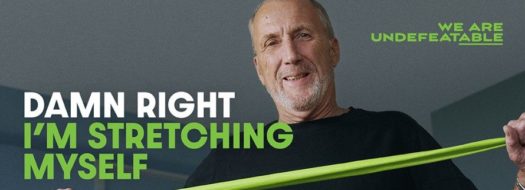
Make Your Move
Make Your Move are a series of free short physical activity videos from the charities behind We Are Undefeatable, created especially for people with long term health conditions. Activities are shown in three different ways – chair based, supported and standing, so you can choose the level that feels right for you and your clients.

NHS Better Health
The NHS Better Health campaign provides resources to help people kickstart their health, by making small changes to their lifestyle. There are resources to help with losing weight, getting more active and quitting smoking, as well as links to the Every Mind Matters mental health campaign and its resources.

Public Health England Campaign Resource Centre
The Public Health England Campaign Resource Centre has everything you need to deliver award-winning marketing campaigns on a local level.
Campaigns include: Moving More, Eating Well, Becoming Smokefree, Drinking Less, Stressing, Checking Yourself and Sleeping Well.
You can filter and search the full range of resources and explore case studies to learn how to create successful marketing campaigns of your own at a local level.
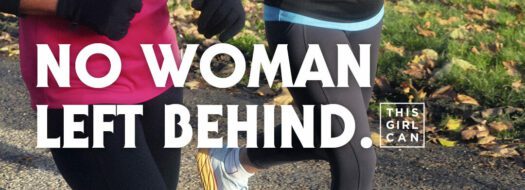
This Girl Can
This Girl Can, Sport England’s flagship campaign to help women get active, is turning its attention to tackling the exercise ‘Enjoyment Gap’ – as it reveals 2.4 million fewer women than men enjoy sport and physical activity. ‘This Girl Can With You’ is a call-to-arms for sport and activity providers to dismantle the barriers that contribute to the Enjoyment Gap. Help women enjoy getting active by ensuring activities for women are:
- Social (help women feel part of a community)
- Suitable (meet women’s needs)
- Self-Affirming (help women feel confident)
- Safe (women must feel physically and emotionally safe when taking part).
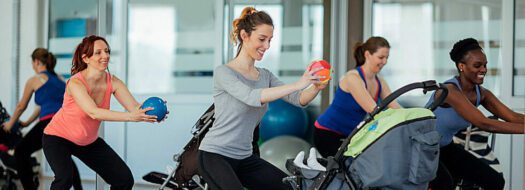
This Mum Moves
Delivered in partnership by The Active Pregnancy Foundation and Institute of Health Visiting (iHV),This Mum Moves is an educational programme which aims to empower women to make informed physical activity choices throughout pregnancy and beyond by providing professionals with the tools to discuss physical activity during the childbearing years.
Together we want to improve the physical and mental wellbeing of pregnant women and new mums by reducing the decline in physical activity levels during and after pregnancy.
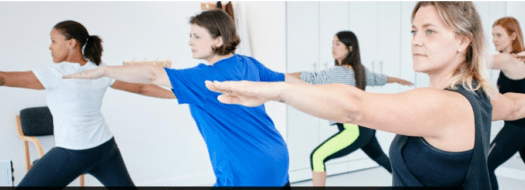
Let’s Move for Surgery
Staying active is important if you’re waiting for or recovering from surgery. If you’re fit and strong, your surgery has the best chance of success, and you’ll likely recover quicker.
Versus Arthritis have produced a Surgery Toolkit where you’ll find tailor-made, follow-along exercise routines for hip, shoulder and knee replacement, as well as full body workouts to help you maintain overall fitness. You can also explore personal stories and advice from those living with arthritis who have been through joint replacement surgery, and tips on keeping active from a physiotherapist.
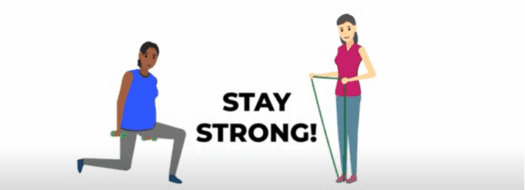
Free Video Guide for Building Strength
The Institute of Sport, Exercise and Health have developed a helpful video go-to guide to raise awareness of the importance of participating in activities that build muscle strength – which is vital for all of us, and especially important as we get older.
In the video they explain the health and wellbeing benefits of muscle strength and share helpful and practical advice on how people can get started on their journey to become stronger.

Free Guide to become Dementia Friendly
Dementia friendly sports clubs and venues is a practical guide for organisations wishing to become more accessible and inclusive for people affected by dementia. Based on insight from people’s real-life experiences, the Guide offers a blueprint for how organisations can make a difference. It provides practical advice on what’s needed to equip staff, plan events, and provide the right facilities so that people affected by dementia can continue to enjoy sport and activities.

Social Care Activity Pack
Get Yourself Active is a programme run by the leading national user-led pan-disability charity Disability Rights UK. Since 2015, they have worked tirelessly to increase Disabled people’s participation in sport and physical activity so that everyone can experience its benefits.
View or download the social care activity pack, which includes information and resources for you to support Disabled people to be active.
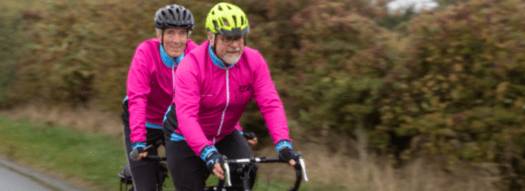
See Sport Differently
See Sport Differently was created in partnership with the RNIB and British Blind Sport to tackle the biggest barriers that stop blind and partially sighted people enjoying sport and activity. Blind and partially sighted people are twice as likely to be inactive than people without sight loss. Together, they want to change this.
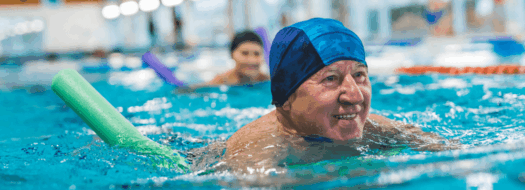
Swim for Health
Swim England has a collection of fact sheets for swimming with various health conditions, including asthma, dementia, diabetes, cancer, epilepsy and more. The fact sheets are a great resource for both health professionals supporting people to get into swimming, and individuals living with these health conditions who would like to swim.
 ) located in the address bar to open the share menu.
) located in the address bar to open the share menu.
